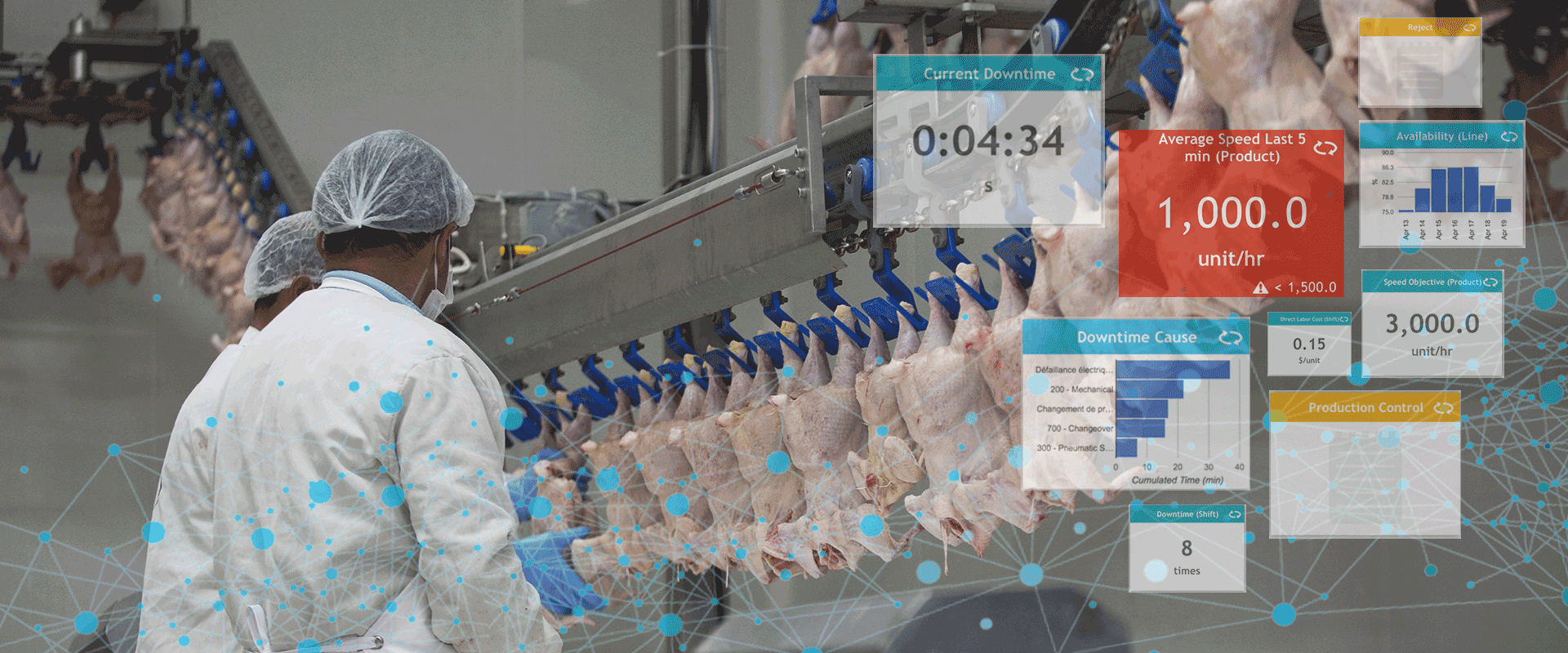Why Data Analytics in Manufacturing is Vital to Compete
In 2024 manufacturers have a wide range of potential technologies to implement into their operations, but what technology should be prioritized? According to Daniel Kupper of Boston Consulting Group, Data Analytics in Manufacturing is one of the core drivers of Industry 4.0, allowing manufacturers to increase innovation, competitiveness and sustainability with little drag on company resources.
With Worximity’s manufacturing data analytics dashboard, terabytes of manufacturing data can be analyzed to support optimizing manufacturing production processes in real-time. Not only can manufacturing data analytics be used within production management to improve manufacturing stats like OEE, but businesses leveraging an advanced manufacturing data analytics platform can free critical manufacturing data from being siloed within production operations. Departments like sales and finance can utilize newly available manufacturing data analytics to improve their operations and processes creating a data-driven culture more broadly throughout an organization.
Growth in Data Analytics in the Manufacturing Industry
According to a recent report, the global manufacturing data analytics market is expected to reach a market valuation of nearly $35.57 billion by 2029. This is a testament to manufacturers realizing that investments in manufacturing data analytics will be essential to compete in the near future.


If you aren’t implementing, or looking to implement a manufacturing data analytics solution soon, you’re likely being left behind.
For effective business decision-making, real-time production tracking software provides a variety of reports and dashboards that can be customized to meet the needs of individual users whether it’s evaluating labor productivity, production capacity, or even idle time.
Leveraging Data Analytics in Manufacturing Production Management
Within production management, a manufacturing data analytics dashboard like Worximity gives you the ability to manage and optimize:
OEE (Overall Equipment Efficiency)
OEE is a metric employed to gauge the effectiveness and performance of an individual machine, line, or plant and is calculated from these factors: Availability, Performance, and Quality. You can learn how to calculate OEE here.
Downtime
Enhance shop floor efficiency by implementing customizable downtime alerts. These alerts offer shop floor managers the ability to tailor notifications for different scenarios. You can learn about some quick downtime wins you can gain here.

Giveaway/Overfill
Giveaway is a key issue for manufacturers who produce fixed-weight items. By monitoring overproduction (or giveaway) in real-time, manufacturers can reduce overproduction events by looking over analytics and recommendations from their software.

Predictive / Preventative Maintenance
Utilizes historical data to provide insights into machine health, enabling proactive preventative maintenance measures. To learn different preventative maintenance monitoring algorithms, go here.
How Manufacturing Optimization Increases Profits
In today's competitive manufacturing landscape, optimization isn't just a strategy; it's a necessity. By fine-tuning every aspect of the production process, manufacturers can significantly boost their profitability. Here’s how manufacturing optimization impacts various facets of a company and contributes to increased profits:
Finance - Real-Time Production Cost Analysis
One of the most significant benefits of manufacturing optimization is the ability to conduct real-time production cost analysis. Advanced data analytics tools allow finance departments to track and analyze costs associated with raw materials, labor, and overhead in real time. This immediate visibility into production costs enables quick decision-making and more accurate budgeting and forecasting. By identifying areas where costs can be reduced or efficiencies can be improved, companies can lower their overall production expenses and increase profit margins.
Purchasing - Production Rates & Delays
Optimized manufacturing processes provide valuable insights into production rates and potential delays. For the purchasing department, this information is crucial in managing inventory levels and supplier relationships. By having a clear understanding of production timelines and potential bottlenecks, purchasing managers can make more informed decisions about when and how much raw material to order. This minimizes excess inventory and reduces storage costs, ensuring that capital isn't tied up unnecessarily. Additionally, anticipating and mitigating production delays helps in maintaining a smooth supply chain, avoiding costly disruptions.
Sales - Forecasting
Sales departments benefit significantly from manufacturing optimization through improved forecasting accuracy. By analyzing historical sales data and current market trends, companies can better predict future demand. This foresight enables manufacturers to adjust their production schedules accordingly, ensuring that they can meet customer demands without overproducing. Accurate forecasting also aids in strategic planning for new product launches and market expansions, contributing to increased sales and profitability.
Company-wide
The impact of manufacturing optimization extends beyond individual departments, benefiting the entire organization. Enhanced communication and collaboration across departments lead to more cohesive strategies and improved overall efficiency. With optimized processes, companies can respond more swiftly to market changes and customer needs, fostering a more agile and resilient organization. Furthermore, a focus on continuous improvement and lean manufacturing principles helps create a culture of innovation and excellence, driving long-term growth and profitability.

Data Silos: Unlocking Your Manufacturing Data Analytics
Manufacturers and most businesses today have a siloed structure of information. Many departments don’t know how others are performing. This gap leads to slow or error-prone decision-making and little visibility across departments. Connecting analytics and providing employees across the company with data they normally wouldn’t have the capability of accessing can drastically increase knowledge and insights throughout the company and improve overall performance and results.
Worximity is not just a tool for the shop floor; it's a game-changer for many departments to help connect production realities to market conditions such as COGS, customer demand, supplier inputs, labor negotiations, and more.
Reinvent Your Shop Floor
Real-time manufacturing data analytics, powered by Worximity, offers manufacturers a transformative solution. With features like OEE monitoring, Downtime Alerts, and Instant Analytics, it optimizes shop floor efficiency. Moreover, Worximity extends its impact to departments beyond production.
In the era of Industry 4.0, where big data analytics, IoT, and AI drive transformation, Worximity proves instrumental in identifying crucial manufacturing KPIs and presenting data in compelling visual formats. This facilitates swift decision-making and enhances productivity, providing manufacturers with an effective tool to navigate complexities and foster growth.
Worximity instantly transfers data from the factory floor into a suite of specialized software, bringing the power of predictive data analytics into the hands of all to improve processes and optimize resources. With Worximity, manufacturers can ensure that no employees are left in the dark, offering easy-to-use software and a range of reports that amplify all users' comprehension of production data. Learn more about how we help our clients achieve success.















